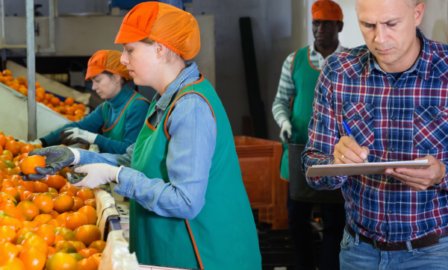Planning for the Baby Food Safety Act of 2021
Current State in Baby Food Industry
Over the past year, multiple voluntary baby food recalls, due to arsenic levels, have increased the focus on baby food and its’ safety protocols. Heavy metals like arsenic, above government standards, are harmful to both adults and children; but even more so for, babies and toddlers, as absorbing more metals can cause cognitive development issues. It is important to recognize that a voluntary recall is described by the FDA as “a voluntary action that takes place because manufacturers and distributors carry out their responsibility to protect the public health and well-being from products that present a risk of injury or gross deception or are otherwise defective.” Thus, these voluntary recalls were vital to minimize the risk to consumers as companies realized certain products tested outside of government guidance levels.
Baby food is an important and growing industry with “more than 90 percent of parents with children 3 and under turning to these foods ”. Additionally, annual U.S. sales of baby food was at $6.25 billion in 2020 and sales are projected to increase over the next four years. It is estimated that preventing lead exposure can potentially net $80 billion in societal benefits. Therefore, resolving the concerns surrounding heavy metals in baby food is critical to meet the forecasted sales trajectory.
The Baby Food Safety Act of 2021
The growing concern and attention around heavy metals in baby food has gained government attention and in March 2021 the Baby Food Safety Act of 2021 was introduced. This policy addresses limits of toxic elements such as inorganic arsenic, cadmium, lead, and mercury in infant and toddler food. With these limits there will be additional requirements for testing throughout food manufacturing, leading to more streamlined and robust processes. As the Baby Food Safety Act progresses through its beginning phases, it will be important to monitor the next steps as the act continues to develop.
Solving Baby Food Safety in 2021
Despite the Baby Food Safety Act being introduced in early 2021, it will be critical that companies connected to infants and toddlers stay informed about the policy. Even though the guidelines are not finalized, the industry is facing increased pressure from consumers to improve their control measures and lawsuits over the health and safety of their products. These changes are pushing businesses to reassess their current Hazard and Risk-Based Prevention Controls (HARPC) and implement additional controls to minimize and detect hazards quickly. Along with preventative measures during the process businesses need to reevaluate their corrective actions in place and add controls to address any deviations. Lastly, the increased focus on safety and governmental oversight should also address consumer concerns as companies investigate ways to improve the consumer experience and create more transparency.
Overall, while the requirements are reviewed and set by the government, businesses can begin to prepare by ensuring their quality procedures, data integrity, and other systems are effective and efficient. What are you doing to be proactively to propel your business forward and mitigate errors and issues throughout the process?
Subscribe to Clarkston's Insights
Contributions from Addie Schmidt



